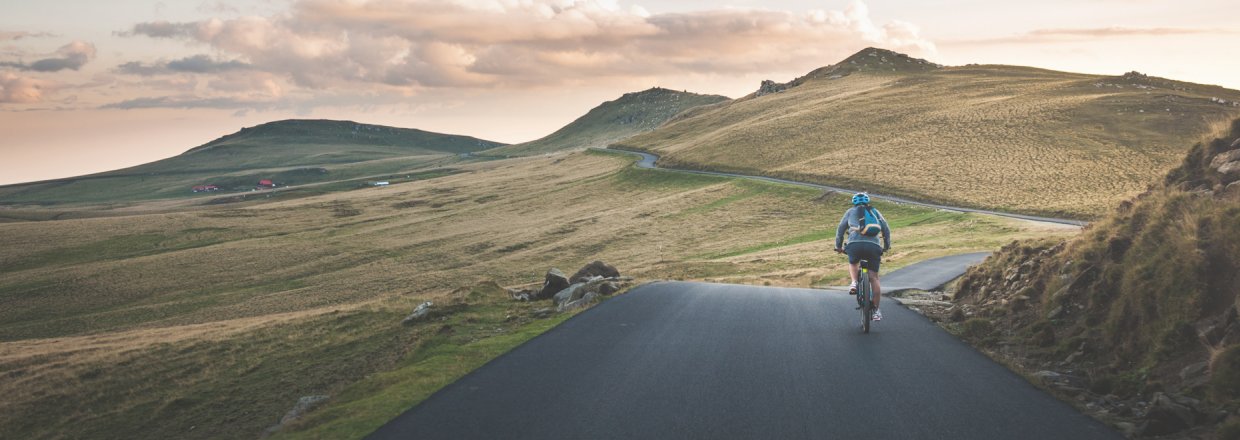Cycling is a great sport for being outside and the scenery, but also a good alternative for people who may be unable to continue with higher impact sports such as running due to injury or older age.
When you are cycling you hold yourself tense for long periods so lower back and neck pain are common complaints.
It’s a leg dominant activity, so you may also experience anterior knee pain and quad strain if you cycle frequently or long distances.
There are plenty of ways that you can work to prevent these complaints and to enhance your training and performance.
Get your set-up right
If you are travelling long distances it is especially important that you get your set up right for your posture. Preparation is key!
Make sure that you have the correct frame size and that your seat is at the right height.
Go with what feels comfortable, but if you are really getting into your cycling then a lot of bike shops will do a personalised bike fit, which can be a great way to minimize the risk of injuries.
Change your position
Don’t go out cycling for three hours and stay in one position the whole time.
Make micro movements and change your position as you cycle.
For example, use the drop handlebars to adjust your posture, move your arms, sit up and spend time outside of your seat.
Stretch and warm up
Warming up before a long ride is important and will minimise the risk of causing injuries to the muscle groups that you will be using a lot during the ride.
Stretching your quads, hamstrings and calves is really important for cycling as these muscles are going to be heavily worked.
You want to get them moving and blood pumping to the area first, and stretching will help with this.
It can also help to stretch out your lower back in preparation.
Here are some simple stretches that you can use to warm up.
Calves
Quads
Hamstrings
Back
Vary your training
Many people overlook the importance of having good all-round strength and stability.
Cycling is a leg dominant sport, but having a strong core and upper body is also going to work in your favour when travelling long distances.
It will help you to comfortably maintain your posture and to push through hills and inclines more effectively.
Support your training with leg work in the gym, but also workout your upper body and core.
Stability activities such as Yoga and Pilates can also be beneficial, as can swimming.
Manage lactic acid burn
When pushing higher gears or going uphill you are going to feel lactic acid build up which can be uncomfortable.
This happens because you are constantly peddling and working the same muscle groups.
There are a couple of ways that you can manage this. This first is to change to a lower gear on your incline and the second is to keep peddling once you are going downhill.
Peddling downhill when resistance is low keeps blood flowing to the area and muscles moving, without the muscle having to work too hard, which helps to flush out the lactic acid.
Stay hydrated and energised
Staying hydrated will help to combat fatigue and cramp.
Once you start doing longer distances you’ve also got to keep your energy and nutrition levels high.
Avoid heavy meals beforehand but opt for a carbohydrate-based dinner the day before (pasta, rice, potatoes), a light breakfast on the day and take high energy snacks on the road with you.
Manage any underlying weakness
If you are experiencing any pain or weakness then you should stop riding and see a physiotherapist. It is never a good idea to ride through pain, as small problems can manifest quickly, especially when training for a big event.
The physiotherapist will be able to assess you and identify any underlying causes, working with you to develop a treatment plan that will enhance your performance.
We use manual therapies such as soft-tissue massage and joint mobilisation which can be hugely beneficial when it comes to treating injuries, weakness and promoting good function. You’re always better off getting on top of injuries early!
